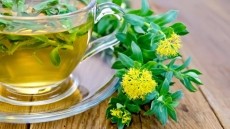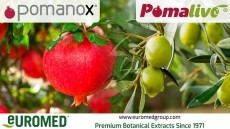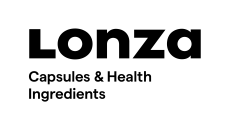More info needed on plant safety, says German group
need to be properly assessed and even regulated, the German Federal
Institute for Risk Assessment (BfR) has warned.
More data is needed to avoid the risks of consuming harmful extracts, including coumarin, which is found in some types of cinnamon and some evidence suggests can damage the liver in high doses, the group said yesterday. The opinion could have repercussions on the supplements and ingredients industry - and consumer perceptions - especially since BfR recommends giving priority to the assessment of substances which are used in isolated or concentrated form in flavourings or in food supplements. At the fourth Consumer Protection Forum this month, the BfR discussed how best to assess the risks arising from substances of this kind, as currently there is not enough data on plant extracts which may have a negative impact on health for consumers. The group said any toxic effect from plant substances should be recorded and followed up by health assessments. If need be new regulations should also be drawn up, the BfR said and the same criteria for testing synthetic additives should be applied to natural ingredients. BfR president Professor Dr. Andreas Hensel, said: "We must start by identifying the plant substances which may be potentially harmful because of their chemical structure. "Furthermore, we must determine the levels of these substances to which consumers are exposed. "The effect of these plant ingredients in the organism should be elucidated with the help of modern molecular-biological methods". The German herbal market, which includes medicines and tea, has been valued at €1,522m (2006) by Euromonitor International. Isoflavones are one typical example of plant ingredients of this kind. They are also called phyto-oestrogens because they have a similar chemical structure to the hormone, oestrogen. These are natural ingredients of the soybean and red clover and have a hormone-like effect, the BfR said. A spokesperson for the BfR said: "It is frequently claimed that the advantage they have over classical hormone replacement treatment involving medication is that they have no side-effects because they are natural. "However, toxicological studies revealed that when administered in isolated or enriched form or at high doses isoflavones impair the function of the thyroid gland. It cannot be ruled out that this oestrogen-like effect also encourages the onset of breast cancer." BfR said that since women are more at risk of developing cancer after the menopause, taking food supplements with a high isoflavone content carries a potential risk. However, isoflavones have been the subject of many studies, particularly concerning their role in cancer prevention and slowing down the ageing process in pre-menopausal women. Isoflavones from soy have also been shown to provide a number of health benefits, including the promotion of heart health and the maintenance of bone health in post-menopausal women. A meta-analysis from Australian researchers, led by Laurence Howes from Griffith University School of Medicine earlier this year appeared to add weight to the positive claims attached to isoflavones. They found that isoflavones eased the symptoms of menopause like hot flushes. Cinnamon is not the only plant substance to come under scrutiny by the BfR. The group has also turned its attention to celery, parsnips and parsley which contain the phototoxic chemical furocoumarin. A large meal of cooked celery with a high furocoumarin intake can cause sunburn-like symptoms for people with sensitive skin after being exposed to the sun for only a short time. Further work on how plant substances might affect the performance of livestock in animal nutrition should also be looked at. This is not the first time the BfR has hit out at cinnamon. Last year the German food authority called for cinnamon-containing dietetic foods carrying health claims to reduce blood sugar and help control type-2 diabetes should be labelled as "medicinal products." The group said then that some products contained too much coumarin.











